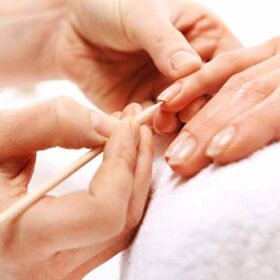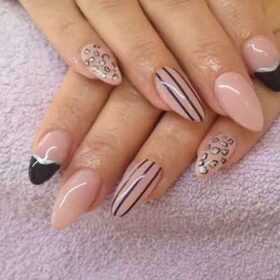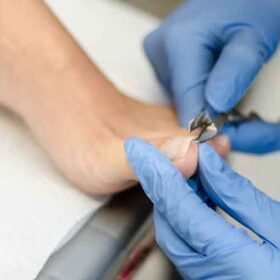Acrylic nail resin is a versatile material widely used in the field of nail prosthetics. Indeed, this technique not only offers great versatility in terms of design, but also exceptional resistance, thus ensuring long-lasting hold. In this article, Maryton takes a deep dive into the world of nail polish. Learn more about its pros and cons.
What is acrylic nail resin?
Acrylic resin is a composite substance, generally made up of a mixture of acrylic powder and monomer liquid. When combined, these two elements form a malleable substance that hardens when exposed to air. This property allows nail professionals to sculpt and shape nails according to the preferences of the clients, thus offering great freedom of creation.
How does nail resin work?
Acrylic resin works through a polymerization process, where the monomer molecules bond together to form a solid structure. Indeed, once applied to the natural nail or an extension, the acrylic resin hardens quickly under the action of air, creating a hard and resistant surface. This process allows you to obtain professional and long-lasting results in a short time.
What are the advantages of acrylic resin?
Acrylic resin has several advantages over other nail prosthesis techniques. First of all, it offers excellent adhesion, which guarantees long-lasting hold without peeling (3 to 4 weeks). In addition, its malleable texture allows for easy handling. This allows professionals to create a wide variety of designs and styles. In addition, acrylic resin is particularly resistant to shocks and scratches, making it an ideal choice for those who have active lifestyles.
The disadvantages of resin nails
However, despite its many advantages, acrylic resin also has some disadvantages. Indeed, it can still be prone to cracking and breaking, especially if it is not properly applied or maintained. In addition, some people may be sensitive to the chemicals present in acrylic resin, which can lead to allergic reactions. It is therefore important to take these factors into account before choosing this nail prosthesis technique.
Last but not least, use a professional manicure kit to take care of your nails regularly to minimize the damage of acrylic resin to your nails. I hope this article can help you!





























Leave a Reply